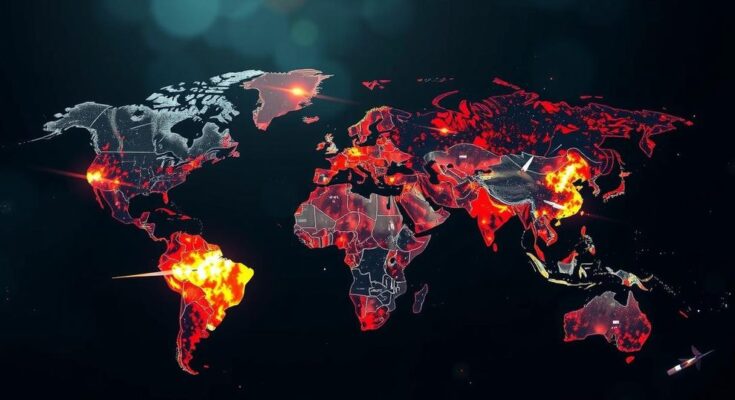The article reports on three significant global events: a ceasefire between Israel and Hezbollah, the denial of bail to Bangladeshi leader Chinmoy Krishna Das Brahmachari, and the expulsion of a British diplomat from Russia.
A U.S.-mediated ceasefire agreement between Israel and Hezbollah was implemented at 4 a.m. local time, effectively terminating nearly 14 months of conflict instigated by Hezbollah along the northern border of Israel. Concurrently, in Bangladesh, a prominent Hindu leader, Chinmoy Krishna Das Brahmachari, has been denied bail following his arrest on sedition charges earlier this week, leading to his incarceration. Additionally, Russia has expelled a British diplomat from its embassy in Moscow, further straining diplomatic relations.
The ceasefire between Israel and Hezbollah is a significant development, as the hostilities had persisted for over a year, contributing to regional instability and humanitarian crises. The involvement of U.S. diplomats highlights the strategic interest the United States has in mediating peace in the Middle Eastern conflicts. In Bangladesh, the arrest of Chinmoy Krishna Das Brahmachari reflects the ongoing tensions between religious communities and the government’s stance on sedition laws. Furthermore, the expulsion of the British diplomat from Russia underscores the deteriorating diplomatic relations between the UK and Russia, amidst broader geopolitical tensions.
In conclusion, the newly established ceasefire between Israel and Hezbollah marks a pivotal moment in the quest for peace in the region. The legal developments in Bangladesh concerning Chinmoy Krishna Das Brahmachari signal a contentious political climate, while the expulsion of a British diplomat by Russia emphasizes the increasing tensions between world powers. These events underline the complex interplay of local and international politics and their far-reaching implications.
Original Source: www.ndtv.com




